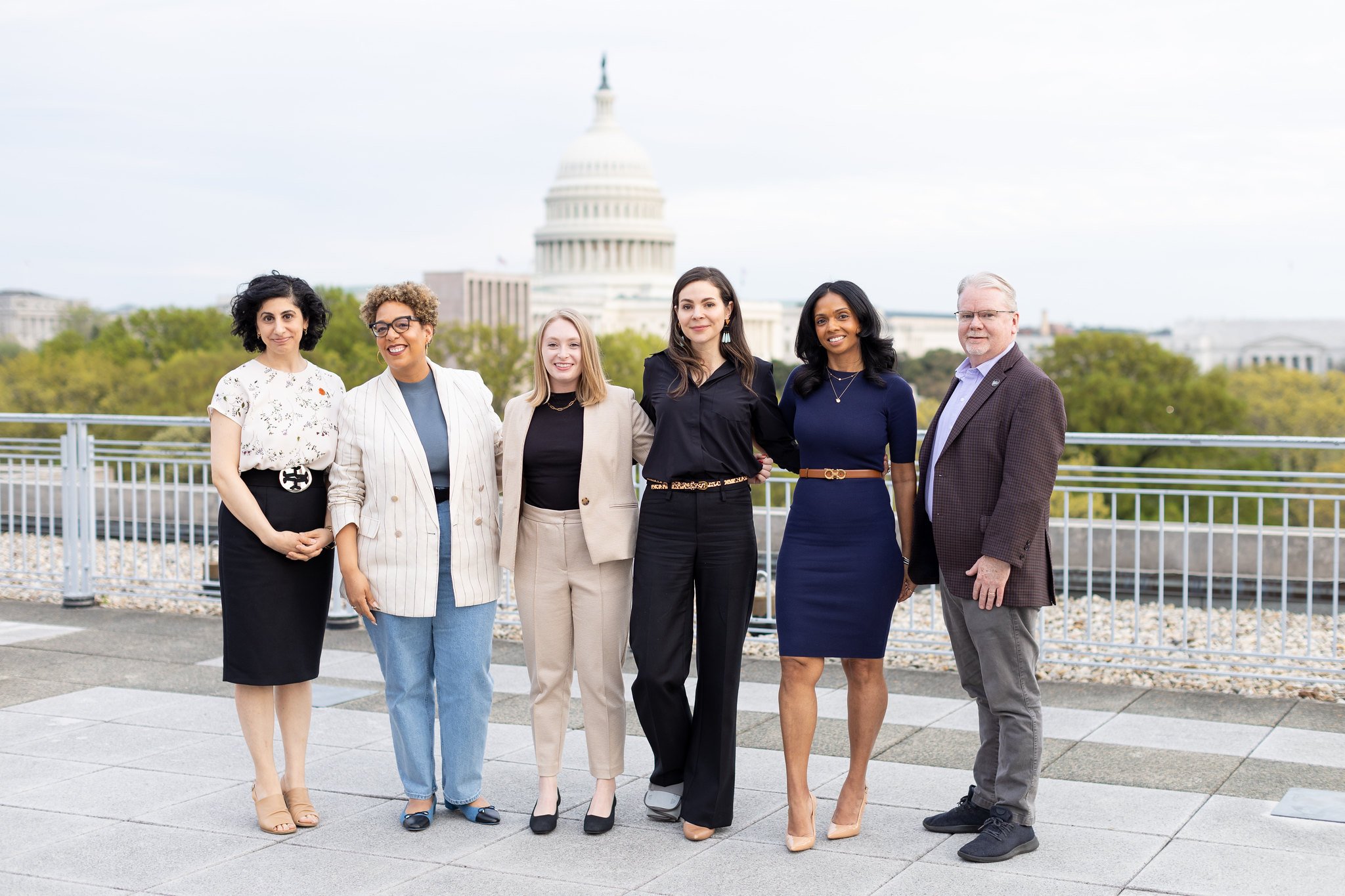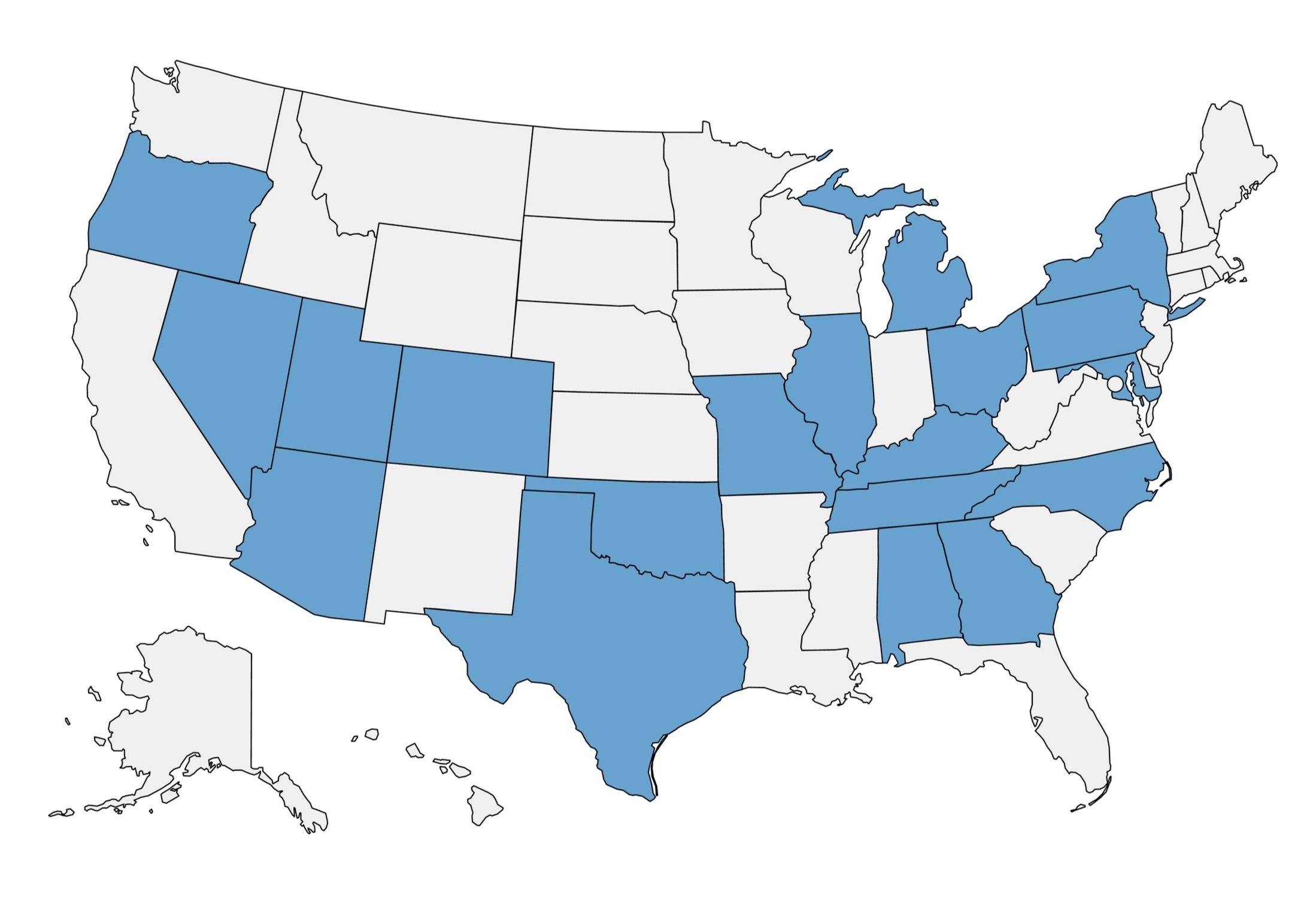Policy & Advocacy
We empower businesses in the U.S. and the U.K. to champion policy solutions that make the criminal justice system fairer and the workforce stronger.
Our Work
When justice is rooted in rehabilitation — not retribution — it fuels strong communities, thriving businesses, and a resilient economy.
Yet too often, outdated policies block people with criminal records from accessing jobs — even long after they’ve paid their debt to society.
RBIJ mobilizes our network of 600+ justice-minded companies use their influence to break down these barriers, working in partnership with local leaders on nearly a dozen policy areas.
Together, we’re championing meaningful reforms that open up new talent pipelines, turn sidelined job seekers into thriving employees, and build a more just and inclusive workforce.
-
Current Campaigns: Ohio
Every year, 650,000 people exit prison and re-enter their communities. Returning home can be an extremely arduous and vulnerable time, as individuals attempt to navigate housing, find employment, access medical care, or advance their education or trade skills. Without critical government documents, records, however, these obstacles can become even greater.
Providing access to identification documentation for justice impacted individuals is a critical step in helping individuals find employment immediately upon their return.
-
Current Campaign: Illinois
After an arrest, an individual's ability to leave jail, return home, and maintain steady employment typically depends on their ability to provide bail. Bail is the temporary release of a person awaiting trial, often on the condition that money be given to guarantee their appearance in court.
On any given day, more than 600,000 Americans are incarcerated in local jails alone. Over the past three decades, the number of annual jail admissions doubled, and the average length of stay increased from 14 to 23 days. Reforming our bail system will strengthen the economy, improve long-term community safety, and increase justice and equity for our communities.
-
Current Campaigns: Kentucky, Illinois, Maryland, Massachusetts, Missouri, Ohio, Texas, federal
Even a decades-old criminal record can create significant barriers to employment, housing, educational opportunities, and more. While processes to clear these records exist across the country, less than 5% of eligible individuals will ever even apply due to a lack of access, knowledge, and funds required.
Clean Slate refers to legislation that automatically clears or expunges qualifying criminal records if a person stays crime free for a period of time. Clean Slate is a technological solution for closing the justice gap. By removing the collateral consequences of incarceration for justice-impacted individuals, the effort is a critical step in strengthening our communities — and our economy.
-
In the U.K., more than 12.6 million people have a criminal record, including one in four working-age people. These are mostly for offenses that were minor or happened a long time ago. Many of these individuals cannot access stable employment and are prevented from providing for themselves and their families. FairChecks would create a fairer and more proportionate system that allows people to move on, find work and contribute to society. FairChecks would help rebuild workforces, strengthen communities, meet ongoing labour shortages and drive inclusive growth, by:
Eliminating automatic disclosure of cautions,
Wiping the slate clean for childhood offenses, and
Excluding short or suspended prison sentences after a certain period.
-
Current Campaign: Georgia, Alabama, Maryland
Occupational licensure refers to legal permission to work in certain occupations. Nearly one in every four workers across the labor force has obtained a license, which is necessary for individuals pursuing occupations as varied as plumbing, dentistry, nursing, cosmetology, and law. The process can require substantial investments of time and money. In many professions and most states across the country, people with old criminal convictions can be completely barred from obtaining an occupational license, regardless of how long ago they were convicted or the relevancy of the conviction to the licensed industry.
Reforming this system would expand the workforce for in-demand professions and strengthen the economy.
-
Current Campaigns: North Carolina, Ohio, federal
Most states suspend, revoke, or refuse to renew driver’s licenses for unpaid fines and fees. They also criminalize driving on a suspended license, and suspend licenses for failures to appear in court. Loss of a license leaves those who drive to work with an impossible choice: lose their jobs or risk further penalties — even arrest — to keep their income. Simply put, it forces Americans into a vicious and desperate cycle of poverty and incarceration.
Ending driver’s license suspensions for unpaid fines and fees will keep workers in their jobs and out of the justice system.
-
Transit options in cities across the country often don’t meet the needs of employees, and can have a huge impact on stable employment as well as economic mobility. This is especially true for vulnerable communities, including those who are justice-impacted. Limited access to transportation hinders the upward mobility of justice-impacted individuals.
With debt-based driver's license suspension as another obstacle to job security, reliable and accessible transit options are as important as ever.



